We’ve tackled Pinterest marketing myths in previous podcasts but it’s been a while. Let’s bust some of the myths that have surfaced (or continued to persist) in 2021.
We hear rumors, theories, and misinformation about Pinterest all the time. Separating truth from myth can be a bit frustrating and time-consuming. No one has time to waste going down the wrong rabbit trail. Am I right?!
Today we are going to debunk some of the false chatter we get asked about all the time. Let’s put some of that misinformation to rest and get you on the right track.
Before we dive in, I want to let you know about our organic Pinterest management services.
If you’ve ever considered hiring out your Pinterest marketing, we would love to talk with you.
We manage over one million Pinterest sessions per month for our clients and we’re experts in how to market the following on Pinterest:
- digital products
- physical products
- blog content.
Our discovery call team will walk you through how our services can benefit your business and collaborate with you on the best plan to meet your Pinterest marketing needs.
Fill out a discovery call form today. Let us take this off your plate so you can focus on other areas of your business.
Also, I wanted to give you a heads up that it’s time for a summer break for the SPM podcast. I believe in the power of rest for my team, so you will not see a new podcast for a few weeks.
We’ll jump-start a new season on August 4th with a new podcast about how to get ahead for the holidays with your content marketing. It’s going to be a fun one!
In the meantime, you can catch our posts on Instagram, grab some tips inside our communities, and catch up on past episodes of the Simple Pin podcast.
Alrighty! Let’s dive into some Pinterest myth-busting.
As I’ve mentioned, we addressed Pinterest myths before in our initial Pinterest Myth Busters episode and a follow-up episode way back in 2018. So why am I talking about it again? Because people continue to get derailed and distracted by them.
It’s really hard to see people going down that rabbit hole of a crazy myth only to find that it’s not accurate. They spend precious creative time working on these mythical tactics and then lose more time backtracking and trying to find the right strategy.
We work hard at Simple Pin in order to bring you accurate information. We don’t pretend to know everything and we’ll tell you when we don’t know. Then we’re going to help you find the best answer.
Feedback from our recent Instagram Reel on this topic confirmed that people are still believing some of the myths we talked about. So we’re just taking it to the next level and doing yet another podcast on the topic.
Here are eight of the more common Pinterest marketing myths. I’m sure you will find at least a few that are familiar to you.
Pinterest Marketing Myths that You Should NOT Believe
Myth #1 – I need to pin other people’s content to be successful on Pinterest.
This is by far one of the most frequent Pinterest marketing myths.
Its origin takes us back to 2014 when the Pinterest Smart Feed algorithm was born.
There was an internal Google doc that surfaced from Pinterest about the algorithm. It said something along the lines that engagement on other people’s pins would have a direct correlation to your pins getting shown in the Smart Feed.
Suddenly we were focused on pinning other people’s stuff. Pinning ratios were developed for our content relative to other creator’s content. There was the 50/50 ratio and then the 80/20 ratio became in vogue.
Then in 2018, Pinterest participated in a Facebook live video with Tailwind. During this live session, the need to pin the content of other creators was the number one question posed by the audience. In this pivotal presentation, the Pinterest rep told us not to worry about pinning other people’s content and to simply focus on our own content.
BOOM! We had a solid answer. We no longer had to worry about ratios and pinning the content of others. However, the rumor still persists.
People still believe you should pin other people’s content to drive up that Monthly Viewer number and your Impressions number. They are hoping it will result in Pinterest showing more of your content.
Here’s what we know about the algorithm.
Pinterest sees a pin, looks at the pin description, the actual image, and then investigates the Pinterest board it lives on to see if it closely matches the board description.
Pinterest gave an example at their Creators’ Conference of an avatar named Susie who was looking for fashion inspiration.
Susie scrolls through Pinterest looking for inspiration, but a board title like Women’s Fashion is too broad. Pinterest wants Susie to find focused boards like Women’s Summer Fashion or Women’s Winter Fashion. They want Susie to get exactly what she wants. They don’t want her to see boots when she’s looking for a swimsuit.
To this day in 2021, there’s still no evidence that pinning other people’s pins will make your content rank higher. Pinning the content of others may be of benefit in terms of community-building in your niche. From what we have seen, however, there is no algorithm benefit.
Myth Busted! You do not need to pin other people’s content to be successful on Pinterest.
Spend your energy creating great content, great pins, and getting them on focused boards that use Pinterest and Google SEO best practices.
Myth #2 – You have to pin 30+ pins per day to build your Pinterest presence.
Nope!
In fact, we’re seeing evidence that pinning LESS is MORE effective. We’ve received multiple reports from people who have pulled back on the number of pins per day and their traffic has gone up.
Remember, Pinterest wants new content. You don’t have to pin the same content over and over again as people have done in the past. In fact, Pinterest doesn’t want you to do that.
Here’s our advice. If you have a ton of content, you can probably sustain a high pinning frequency (think along the lines of 15-20 pins). But if you only have a few blog posts or a couple of product listings, it’s okay for you to stick between two and five pins per day.
Myth Busted! You do not need to pin 30+ pins per day.
Build your presence by creating new content.
Related: Using Analytics as a Content Creation Tool
Myth #3 – Deleting pins that didn’t do well can boost my impressions on Pinterest.
This one also originated back in 2014 with the inception of the Pinterest smart feed.
We’ve all had those pins that don’t do well right away and we may be tempted to delete them. I want you to leave them alone. I promise they are not hurting you. Just leave them 🙂
Somebody might pin that pin one day and it will take off. Suddenly it’s bringing great traffic to your website year-over-year, month-over-month. You just never know what might happen.
Myth Busted! You do not have to delete pins that don’t perform well.
Remember, Pinterest is a long game. Just leave the pin out there. Let it do its work!
Myth #4 – Having a ton of boards is going to give you a wider reach.
You do not have to have a lot of boards to make your Pinterest marketing work. You only need the boards that are most relevant to your content.
For example, if your content is about dogs, you don’t need a Backyard board. Now, that might work if your content is how to design a backyard for dogs. But if you’re just talking about backyard landscape design, that’s not going to work for your content.
Myth Busted! You do not need a ton of boards.
Keep your boards laser-focused on your topic. You only need the number of boards that are relevant to the content you pin.
Myth #5 – If you have a drop in traffic you’re doing something wrong.
Nope! You’re not.
It’s crucial to understand that many factors play into a drop in traffic. Getting caught up in Pinterest’s spam filter is a big one.
If Google Analytics shows your Pinterest traffic is humming along nicely, then suddenly it falls off a cliff, that might be an indicator that your account is caught up in the spam filter.
It doesn’t mean you did something wrong.
Now, if you’re sitting there saying “Kate, I pinned the same pin 100 times a day”, that drop is on you. You did do something wrong.
Two things will get you marked as spam.
1) Pinterest did a spam sweep of the platform and your account happened to get caught up in that sweep. You didn’t do anything wrong, it just happened.
2) You’re engaging in spammy behavior — that is, you’re pinning the same pin over and over again on the same day.
If you email me and tell me you’re caught in spam because you kept pinning the same pin over and over, I don’t feel bad for you. Why? Because I’ve told everybody millions of times, do not pin the same thing over and over.
If you pin a pin on Monday and then pin the same pin again on Friday and you are marked as spam, it is not because you pinned the same pin several days apart. You just got caught up in the filter.
Myth Busted! A drop in traffic does not mean you did something wrong.
IF you’ve been marked as spam, you need to turn into the biggest advocate for your Pinterest account and keep at it until you get it restored.
If you don’t get a response initially, DO NOT GIVE UP! Get creative in how you communicate with them.
I want you to go to Twitter and tweet them. I want you to DM them on Twitter. I want you to DM them on Facebook. If you have shown yourself to be a great creator on the platform and you have done nothing wrong, I want you to hound them!
Myth #6 – A drop in impressions means that Pinterest doesn’t like me.
Listen, there’s a lot of reasons you might have a drop in Pinterest impressions. Finding the cause requires some investigative work.
We have several podcasts you can check out if you want to go deep into analytics (see the end of this post for links). I’m not going to do that here. But I do want you to take 30 minutes and investigate why this drop might have happened.
Could it be that one of your pins is no longer ranking in search?
If your pin has been in the top of search and then suddenly your impressions or clicks drop, then maybe this pin fell out of search. Go check out the pin’s keywords and see if you need to adjust your descriptions.
There could also be a glitch on the platform. We’ve seen a series of glitches many times when Pinterest adds new things.
Myth Busted! A drop in Pinterest impressions does not mean Pinterest doesn’t like you.
Things are always fluctuating on the platform. Please don’t take it to heart. A little time spent investigating your analytics could uncover a reasonable explanation.
Myth #7 – Pinterest Idea Pins (aka Story Pins) are just like Instagram stories.
First, let me say I like the name Idea Pins. I think it’s perfect for Pinterest and more closely matches their purpose.
To respond to the myth, Idea Pins are not like Instagram stories.
Why? The answer is something that is difficult to hear.
Pinners don’t care about you. They only care about what they are looking for.
Let me explain.
When I go to Instagram, I go there to follow people’s lives. Right now one of my friends is about to have a baby. I follow her on IG because I’m really interested in what’s happening in her life.
When I move from Instagram to Pinterest’s platform, my intent becomes all about me. I don’t care about someone having a baby! What I care about is having my backyard look awesome or finding the perfect outfit for summer.
I don’t care who gives me the information as long as I find it. I’m on Pinterest to search for an answer to my problem.
Myth Busted! Instagram stories and Pinterest Idea pins are not the same things.
If you’re trying to figure out how to make the leap from Instagram marketing to Pinterest marketing, just remember this phrase – Pinners don’t care about me.
Talk about the benefits and features of your products or ideas when you’re creating Idea pins on Pinterest. Focus on the problem they solve for your audience.
Myth #8 – Pinterest keywording for e-commerce accounts is the same as Amazon keywording or Google SEO keywording.
Not really.
You can use some of the same keywords but how they are applied is not the same.
Keywording on Pinterest, especially in the pin description, needs to consist of one to three sentences that answer the Pinner’s question. They need to offer tips or talk about the benefits your audience will receive.
You want to be thinking less about searching for the product and more about the solution your product offers.
Keywording doesn’t have to be drastically different from other platforms, but it does need to describe your content from the angle of pinners, especially for well-known products.
Pinners might not be looking specifically for your product, but they might be looking for a product that does “X”.
There you have it. Our final Pinterest marketing myth busted for today!
Pinterest keywording is different from that used by Amazon or Google SEO.

A Takeaway and an Encouraging Word
I hope this Pinterest myth-busting episode has been super helpful for you. Here’s what I want you to take away.
- There’s a lot of platform information out there. You always have to follow the people that you feel you can trust to get the right information so that it saves you time – and a headache – when doing your marketing.
- If something sounds kind of fishy or like it’s not going to work, chances are it probably doesn’t work.
- Critically analyze what you want to do with your Pinterest marketing. Build a strategy around why you use Pinterest. Personally, for Simple Pin Media, I use Pinterest to help grow my email list so that we can introduce people to our products and our services.
Maybe you want to focus on product sales. If this is you, I encourage you to go back to episode #237 with Laurelbox. They talked about the difference between their Pinterest user and their Instagram user. It was such a great episode about getting new leads for products.
Finally, let me offer some encouragement from my own recent experience.
I have another brand (Kateahl.com) that I’m just trying to get up and running. I’m wrapping my brain around it but I can’t yet get into Pinterest marketing.
My Pinterest account is set up over there but my brain hasn’t fully developed my goals and strategy for that content. So I’m not going to put Pinterest marketing in place just yet. I don’t feel solid on the foundational elements of my website and my teaching quite yet.
If you’re in a position where you’re just absorbing some Pinterest marketing tactics and you feel like you can’t do Pinterest marketing yet, that’s fine! You’ll get into it once you get your foundation set for your business and you know why you want to use Pinterest.
—-
As a reminder, we’re going to take a break this summer. We will be back on August 4th with our holiday content planning episode. We look forward to connecting with you then!
For Further Listening/Reading:
- Why Pinterest Analytics Should Be Defining Your Pinning Strategy
- Tracking Pinterest Everything With Google Data Studio
- Understanding Pinterest Analytics
FREE Download -- Pinterest Board Clean Up Checklist

Get a jump start on cleaning up your Pinterest boards. Download our FREE printable Pinterest clean-up sheet making it easy to organize your boards.

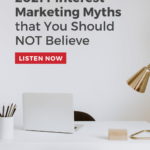
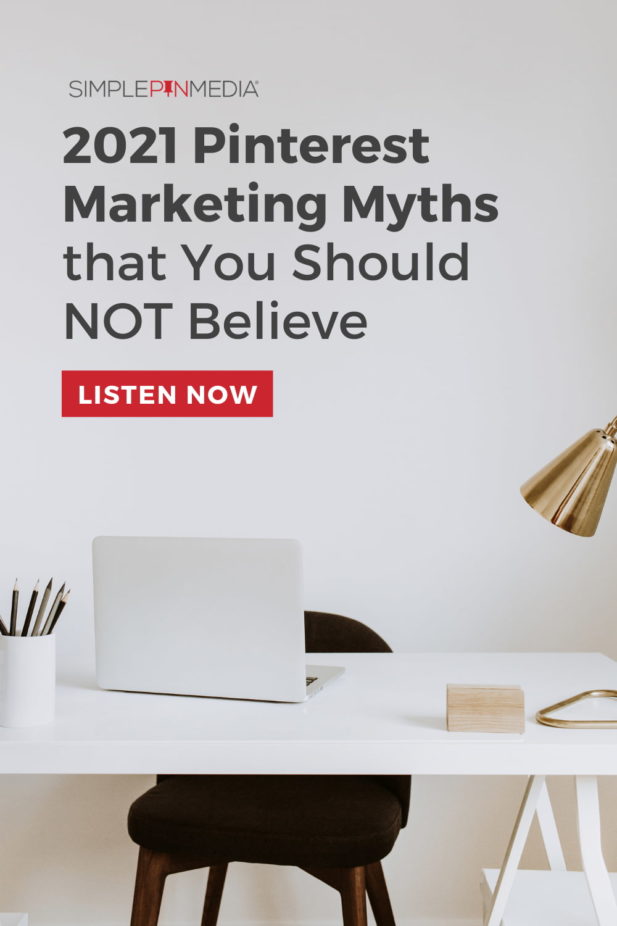


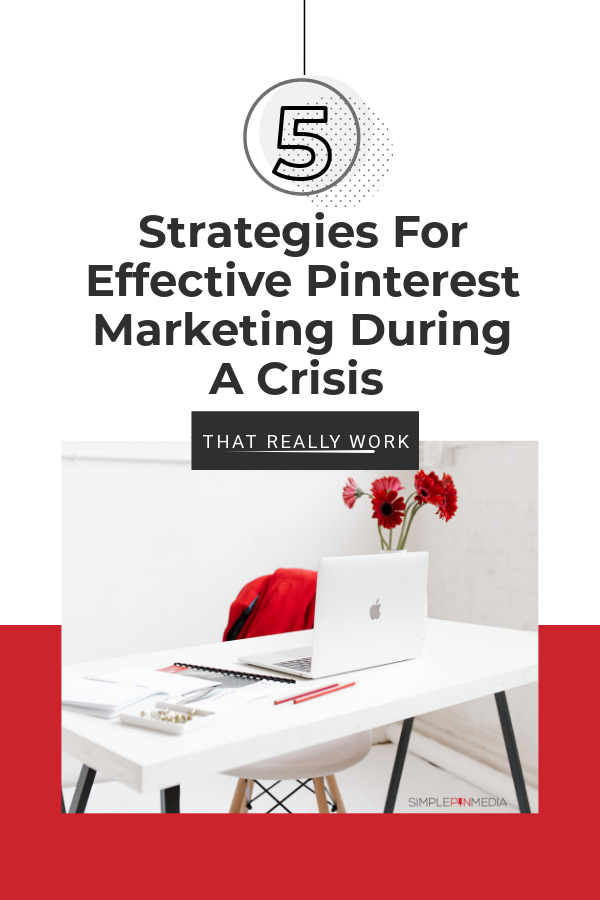
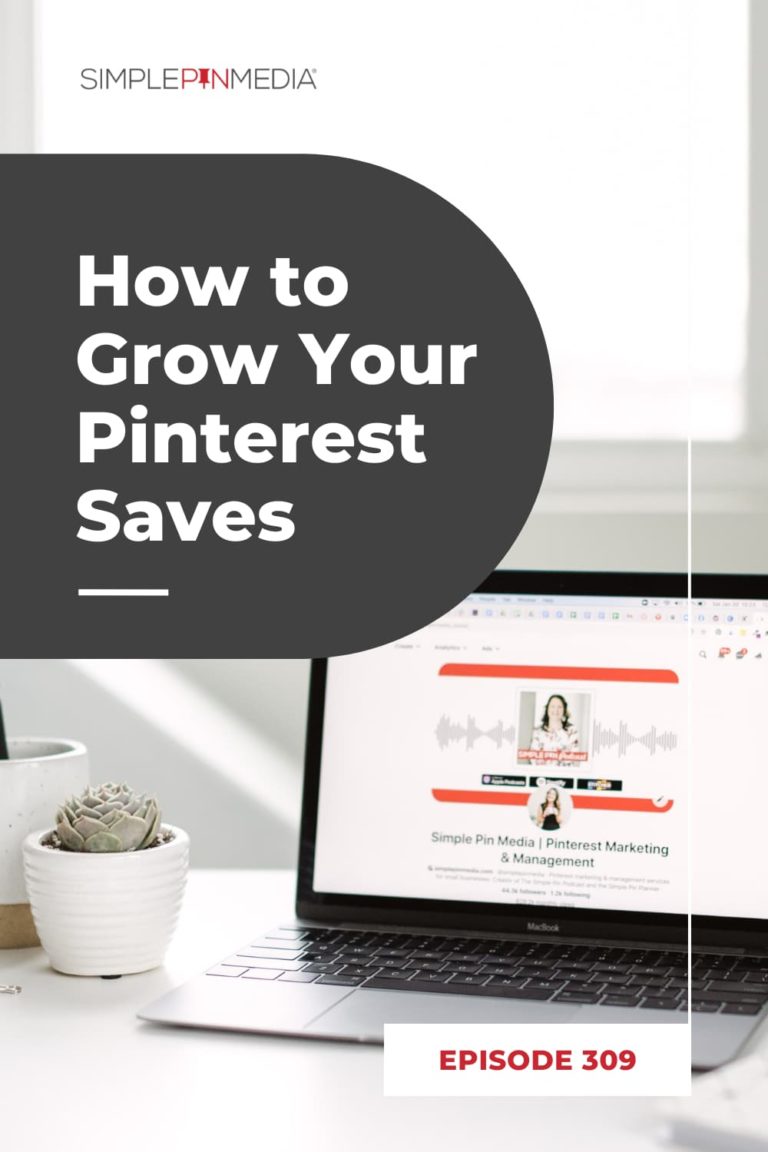
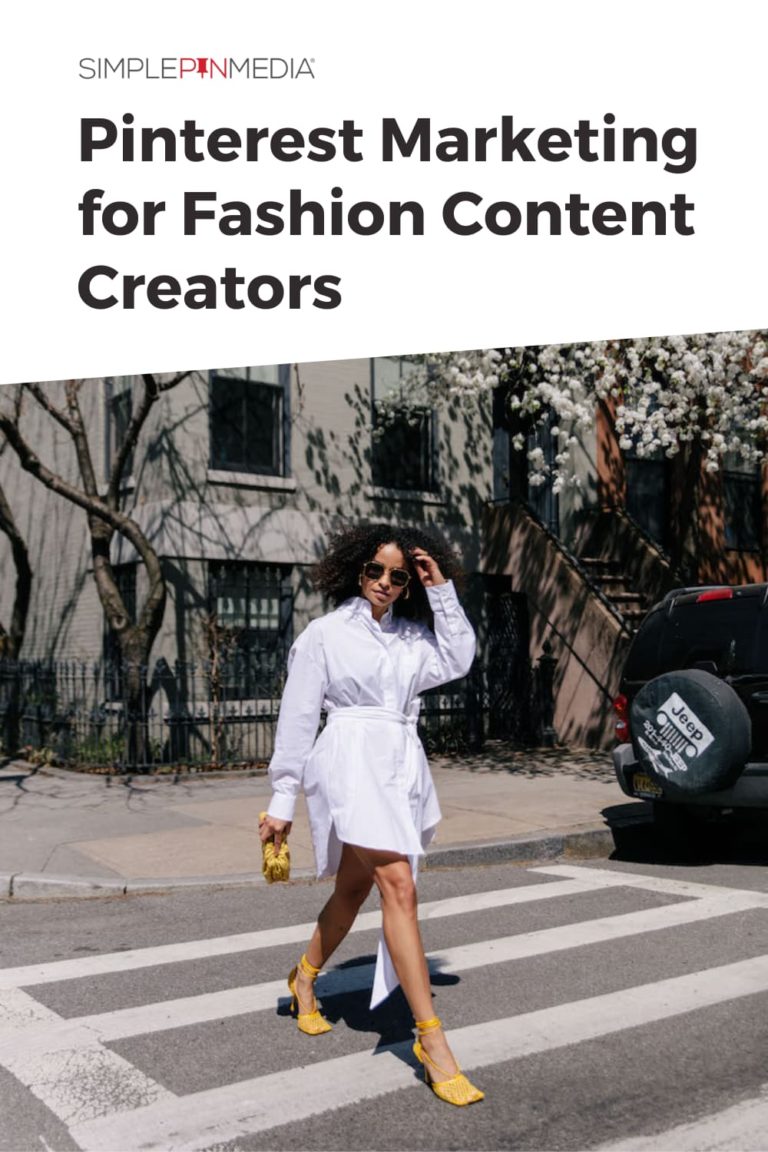

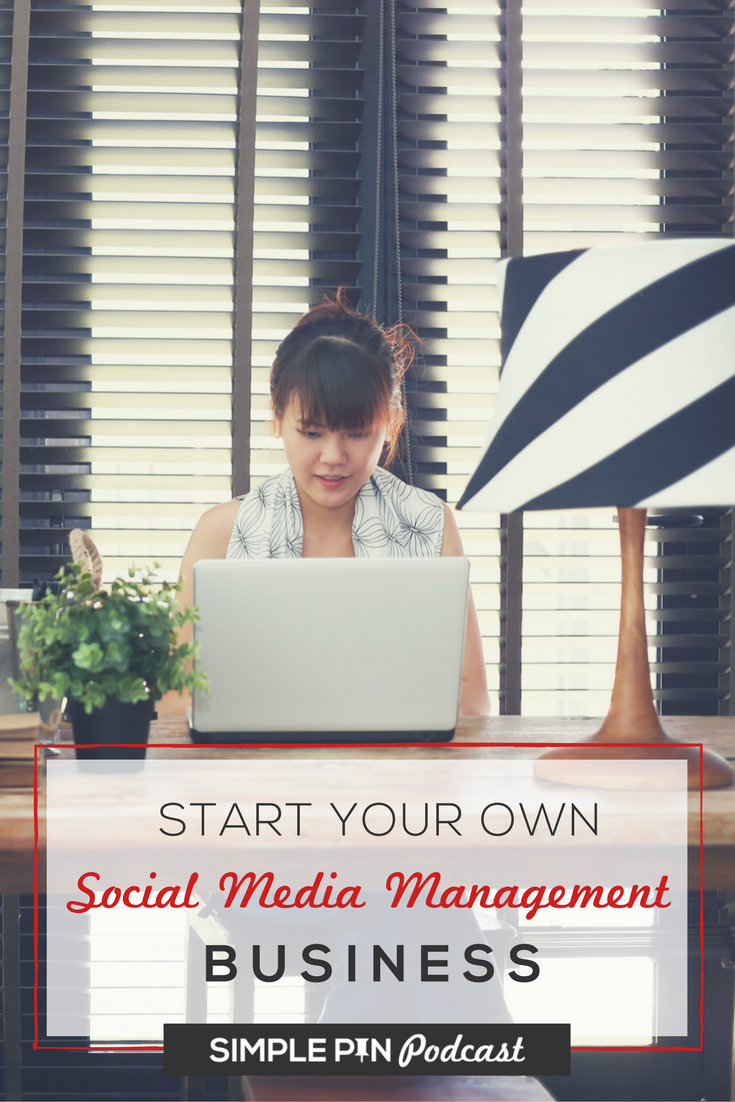

Thanks once again for clearing the air, it’s a fact that there is a lot of conflicting information out there around Pinterest best practices. One answer that continues to elude me is this: How many times can I pin the same Pin? Tailwind suggests this:
In Conclusion:
Your content deserves to be Pinned more than once. Make the most of your hard work by resharing your Pins easily and intelligently with these techniques. (referring to this article: https://help.tailwindapp.com/article/517-why-and-how-to-reshare-your-content-to-pinterest)
I understand posting the Pin to relevant boards (at intervals of time) is acceptable. Or is it?
I’d love to hear more on this subject, or if you have already talked about it please let me know. Thank you again, Frieda (fyi…My website will be launched soon.)
Yes, you do want to pin to the most relevant board first and then repin it to a couple other relevant boards over time (several days apart is usually best).